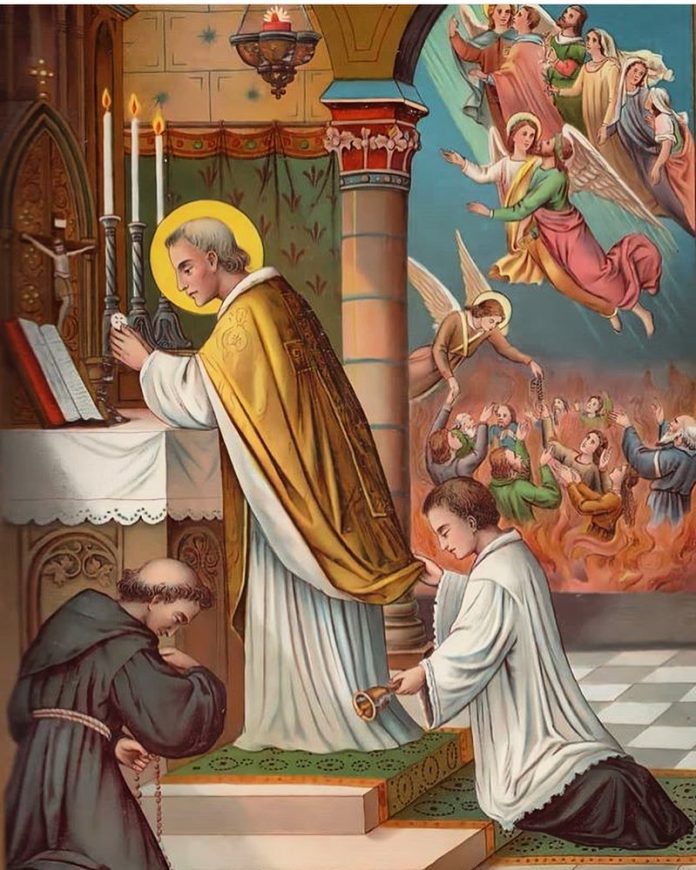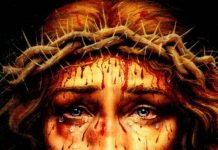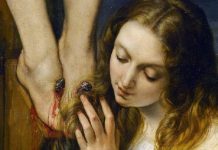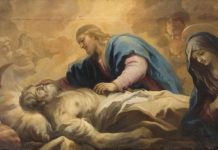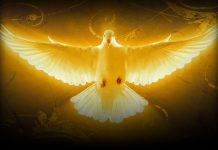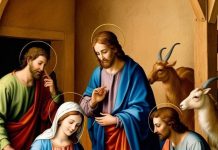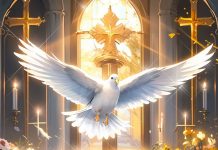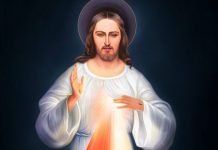At the Mount of Transfiguration the disciples saw Jesus, Elijah and Moses in conversation. ’And he was transfigured before them, and his clothes became dazzling white, such as no one on earth could bleach them. And there appeared to them Elijah with Moses who were talking with Jesus’ (Mk 9:2-4). Matthew also gives a similar narration of what happened there. But it is Luke who gives an idea about the subject of their conversation. ‘They appeared in glory and were speaking of his departure, which he was about to accomplish at Jerusalem’ (Lk 9:31).
The greatest gift that we received as a result of this historic ‘departure of Jesus’ at Jerusalem was the Holy Eucharist. Jesus was unequivocal in telling us that this heavenly bread – the bread of life – was nothing but his own flesh. Before the comprehensive sermon about the Holy Eucharist, what we read in John’s gospel (ch. 6) are two miracles that Jesus performed. Of them the first was feeding the five thousand with five barley loaves and two fish. Second one was Jesus walking on the water. With these two miracles, Jesus was trying to tell us that the works of his glory go beyond natural laws. The water that became wine at the wedding at Cana was also Jesus’ way of telling that everything in this universe, even inanimate things, will obey his words. When such a person says that he is voluntarily offering his own flesh and blood as food and drink for us, doubting it is tantamount to denying the very divinity of Jesus.
As we have seen, Jesus, Elijah, and Moses were discussing the Paschal mysteries that were to be accomplished in the days ahead. It is not surprising that God the Father sent two persons who had first hand experience about the ‘bread from heaven’ to meet his son who was to become the true bread of life in a few days. Moses fed his people in the desert with the bread from heaven for forty years. At the end of it they entered the promised land. Similarly Elijah endured the hardships of an arduous journey through the wilderness to reach the mount of God in the strength of a cake baked on hot stones and sent through an angel of God (1 Kings 19:7-8) .
For us too, there is only one thing – the life giving bread from heaven – that will sustain us in our journey to ‘abide in the Lord’s tent and to dwell on His holy hill’ (Ps 15:1). There is no greater tragedy than not understanding it in its true perspective. Why should we doubt that a God who can ‘lay sinews on dry bones, and cause flesh to come upon them, and cover them with skin, and put breath in them so that they might live (Eze. 37:5-6) is also able to transform the body of his son into a wheat bread and his blood into wine?
There is only one thing more surprising than the transubstantiation of our Savior’s body and blood into eucharistic species that resemble the dazzling purity in which Jesus presented himself in the Mount of Transfiguration. It is Christians who consider the Holy Eucharist as a mere loaf of bread, ignoring the exhortation of Jesus to eat it so that those who believe in him would inherit eternal life!
‘You are a priest forever according to the order of Melchizedek’ (Ps 110:4). When we read in the Letter to the Hebrews that this prophecy was fulfilled in the high priesthood that Jesus accomplished by his sacrifice in the cross, we should also remember that King Melchizedek who appeared from nowhere to greet Abraham brought exactly the same things that Jesus used at the time of instituting the Sacrament of Eucharist. ’And King Melchizedek of Salem brought out bread and wine’ (Gen 14:18). There is something more to it. Melchizedek was a king and a priest at the same time. ‘He was priest of God Most High’ (Gen:14:18). In Jesus Christ we find the perfect combination of this kingship and priesthood taking place at the ‘appropriate time’. He transforms his body and blood into bread and wine in the Holy Eucharist and serves them to us, the children of Abraham by faith.
Let us pray to the Eucharistic Lord to give us the grace to understand what the Blessed Sacrament is. As long as we are not blessed with this grace, what we can see in a consecrated host is only a piece of bread. John writes that Satan entered into a person who received the consecrated host without having this grace (Jn 13:27) and that he went out into the darkness outside (Jn 13:30) soon thereafter. At a time when the number of Judases who desecrate and profane the Holy Eucharist goes on increasing, let us come more and more close to the Blessed Sacrament. Let us also pray for the grace to see the dazzling holy face of Jesus Christ in the consecrated host, in more dazzling brightness than what Elijah and Moses saw.
May the Eucharistic Lord give us the grace to love the Blessed Sacrament more than anything else.


